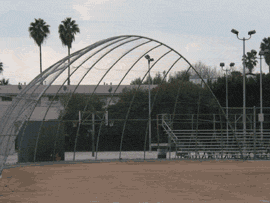The collective minds of NBA basketball are much smarter than the NHL. They will agree on a new collective bargaining agreement before the start of next season. The players’ union and David Stern disagree on two important issues. Stern wants a twenty-year-old age limit for NBA players – it’ll never happen – and he wants to expand the NBA development league so players can be sent down to the developmental league just as baseball players can be sent to the minor league – it should happen.
I’ve talked about his before. A true basketball minor league, a league whose players are under contract to NBA teams, should help crumble the pretense of college basketball. College basketball is based on the idea that the players are amateurs, that they don’t get paid. You might not pay much attention if Maurice Clarett says he received $3,000 a week for a no-show job but you better believe that Chris Webber received $280,000 from a booster while he was one of the fab five at Michigan because it’s there in the court records.
Basketball players could choose to be true student-athletes instead of taking courses called “Playing Basketball” and “Officiating” to meet eligibility requirements. Boosters won’t need to pay for no-show jobs because a player coming out of high school could actually make a living in minor league ball. Players will have somewhere they can mentally and physically develop instead of sitting at the end of the Portland bench for four years as Jermaine O’Neal did. Speaking of the bench, it might stop the practice of assigning the last person on the bench a phantom injury when a better player comes off the injured list. Send them down so they can play.
It also gives teams more options. The next time a rookie refuses to go back into a game, as Carmelo Anthony did last year, threaten him with a minor league assignment. If Darius Miles has a fit and drops the “N” word on coach Maurice Cheeks over twenty times, what can Portland do? They can suspend him for a few games but so what?
Here we get we get into the third contentious issue in the collective bargaining agreement: shortening maximum guaranteed contracts from seven years to four. Probably a good idea. Miles has a six year, $48 million contract, guaranteed.
It’s a funny thing. I was looking for all the evidence that colleges make money hand over fist from sports and I kept finding research that says it isn’t so. One third of Division 1A athletic programs are losing money. And if schools were forced to include capital expenses – upkeep, new facilities – in their costs, every Division 1A program loses money.
The only one who isn’t losing money is the NCAA. The television contract for March Madness is $6 billion over 11 years. After spreading the money around to member teams, they have $20 million left over this year for administrations costs.
A basketball minor league could help universities help themselves. Academic institutions could return to educating students instead of trying to educate athletes who don’t want to be there. Colleges might begin to rein in sport program budgets. Schools would not bankrupt themselves by becoming Division 1A program without the necessary millions.
…if schools were forced to include capital expenses – upkeep, new facilities – in their costs, every Division 1A program loses money
And I would have enough money to go to a professional basketball game because I could see my local minor league team play. It’s a good thing.

 Avenue of the Athletes was erected for the 1984 Olympics in Los Angeles. I suppose it is in Echo Park because Dodger Stadium is nearby. I assume that the athletes all have a connection to Los Angeles.
Avenue of the Athletes was erected for the 1984 Olympics in Los Angeles. I suppose it is in Echo Park because Dodger Stadium is nearby. I assume that the athletes all have a connection to Los Angeles. 


